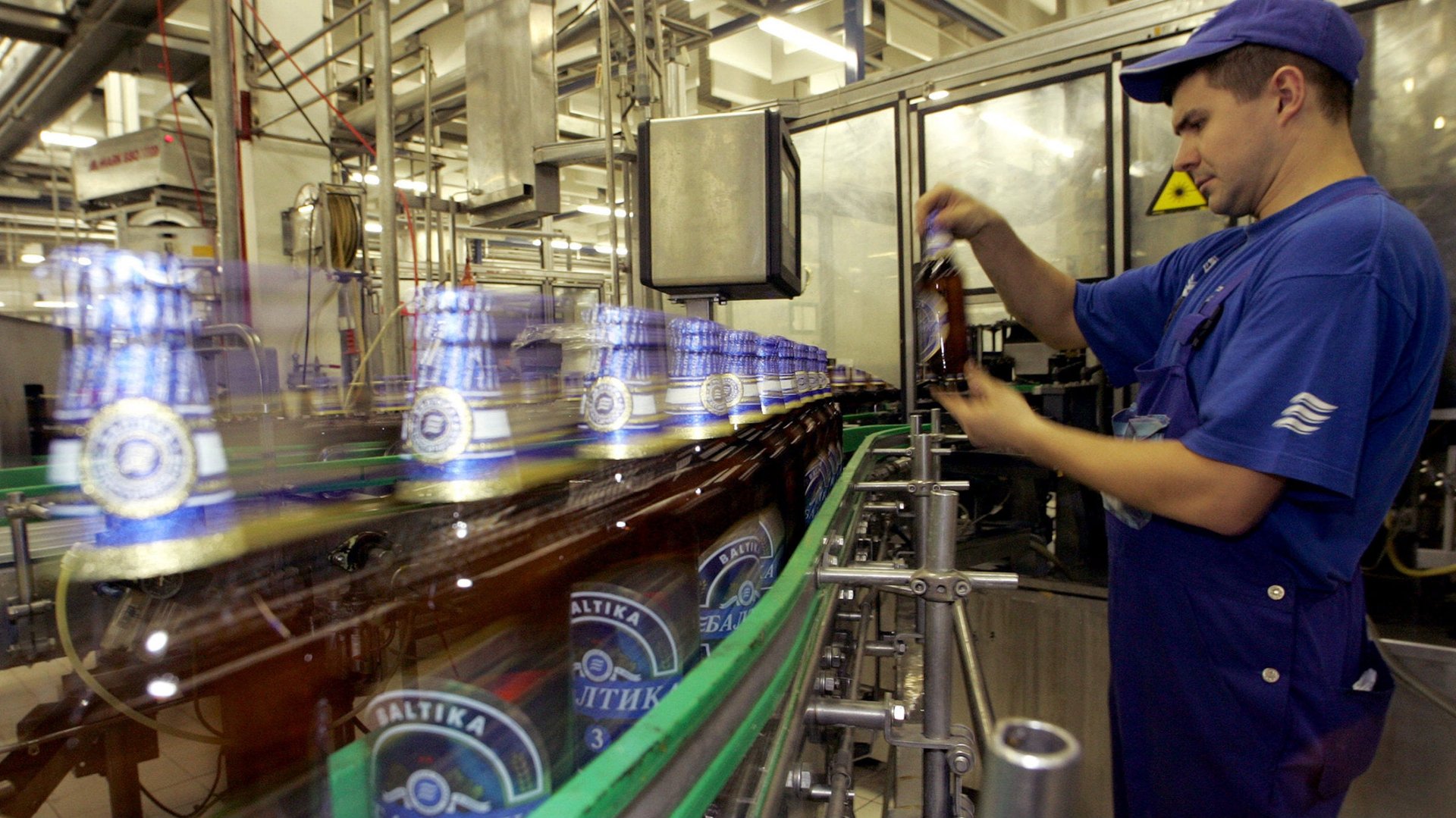European companies rue their exposure to Russia’s sputtering economy
From beer to banks to bars of soap, European companies’ extensive exposure to the Russian economy was evident today, as some of the firms with the deepest ties reported their latest quarterly earnings, and CEOs lamented the damage wrought by the sputtering, sanctions-threatened Russian market.


From beer to banks to bars of soap, European companies’ extensive exposure to the Russian economy was evident today, as some of the firms with the deepest ties reported their latest quarterly earnings, and CEOs lamented the damage wrought by the sputtering, sanctions-threatened Russian market.
The Danish brewer Carlsberg is the leading beer seller in Russia, with a 38% market share. The group’s Eastern Europe business unit, which is dominated by Russia and Ukraine, accounts for around 30% of the beer it sells by volume, and 20% of revenue. The company warned today that its profit this year would be lower than its previous guidance, weighed down by the weak ruble.
The brewer reported its first net loss in two years in the latest quarter, and Russia was the clear culprit. Beer sales by volume dropped by 5% there, and the company expects a similar result for the full year. CEO Jørgen Buhl Rasmussen observed on a conference call with analysts that the current pessimism about Russia is “quite a big change versus how perception was around the economy just three months ago.”
The Hungarian pharmaceutical firm Gedeon Richter is another company that issued a profit warning related to its Russian woes today. The company generates a fifth of its sales in Russia, where revenue dropped by 18% in Hungarian forint terms during the first quarter. The company’s overall net profit was chopped in half for the period. In Russia and Ukraine, “wholesalers don’t dare to keep large inventories, and all actors are very cautious,” said CEO Erik Bogsch.
The French bank Société Générale also reported a surprise drop in profits (pdf), thanks to a €525-million ($731-million) write-down in the value of its Russian unit, Rosbank. Last month the French parent company boosted its stake in Rosbank and next week it will present a three-year plan to “achieve satisfactory profitability” at the unit. This assumes (optimistically) “a scenario of gradually easing tensions,” the bank said. For now, SocGen badly missed market expectations due to the write-down, citing “the decline in the rouble, growing uncertainty concerning the environment and delayed performances” at its franchises in Russia.
The Dutch bank ING has more than €10 billion in assets in Russia and Ukraine. On its first-quarter results conference call, chief risk officer Wilfred Nagel said the bank would support its clients in these countries “to the extent reasonably possible.” The company has “pruned” its exposure to the countries, where business activity has been falling anyway, he added. “Our clients are taking generally a very prudent approach—they’re hoarding cash.”
The German consumer goods group Henkel reported strong first-quarter results, and even rather healthy volume sales of its beauty and cleaning products in Russia, its fourth-largest market. But the plunging ruble took its toll when Henkel translated this revenue into euros. CEO Kasper Rorsted said he expected growth in Eastern Europe to slow this year, but the uncertain impact of sanctions means that “your assessment is as good as mine,” he told an analyst on a conference call.